Explore Various Data Storage Options in the Microsoft Cloud
#microsoft 365, #onedrive, #sharepoint, #azure
Cloud storage has become an integral part of modern computing, enabling data accessibility, flexibility, and scalability for individuals and businesses alike. Microsoft offers various cloud storage services as part of its Microsoft 365 and Azure cloud computing platforms. These services provide storage solutions for individuals, businesses, and developers, allowing them to store and manage data in the cloud.
Cloud storage is a service which can be used by individuals and organizations to manage their data, like files, documents, photos, videos, and more, on remote servers that are managed by cloud providers like AWS, AZURE, & GCP. One can easily access the data that is stored in cloud from across the globe or can easily expand the capacity of storage as required.
Microsoft's cloud storage services are designed to provide flexibility, scalability, and security for various data storage needs, from personal files and collaboration to enterprise-level data management and application development. The choice of service depends on the specific requirements and use cases of an organization or individual:
These storage solutions are made for different applications and use cases. For instance, SharePoint facilitates collaborative data management, OneDrive provides centralized cloud storage, and Azure Blob Storage is particularly suited for data analytics.
OneDrive
OneDrive is a dedicated personal cloud storage solution well integrated into the Microsoft ecosystem. It serves as a secure vault for individual users' files, ensuring effortless accessibility across diverse devices. Just like a virtual filing cabinet, OneDrive keeps your files well organized and easily available. It's perfect for uploading personal documents, photos, and videos, etc. and then easily sharing them with friends, family, or colleagues. Since OneDrive is well integration in Microsoft 365, it provides efficient collaboration on files, allowing multiple users to edit and modify documents in real-time. This service ensures that your files are synchronized across multiple devices, making it perfect for both personal use and teamwork.
Key Features
- Individual Storage: Securely stored personal files.
- Multiple-Device Access: Data accessibility from various devices.
- Collaboration: File sharing and editing in real time.
- Integration: Well integration with Microsoft 365 suite.
Best Use Cases
- Personal file backup and synchronization across multiple devices.
- Easy access to files.
- Sharing files and real time collaboration with family, friends, or colleagues.
Backup & Redundancy
Microsoft's commitment to data protection in OneDrive is evident through its robust backup and redundancy measures. Your data is safeguarded with automated backups, ensuring that even accidental deletions don't result in permanent loss. Moreover, Microsoft employs a comprehensive approach to redundancy by replicating data across multiple geographically dispersed data centers. This means that even in the rare event of a hardware failure or unforeseen disruption at one location, your data remains accessible from another. Microsoft's dedication to redundancy and backup in OneDrive provides a strong layer of security, ensuring your files are always available and protected.
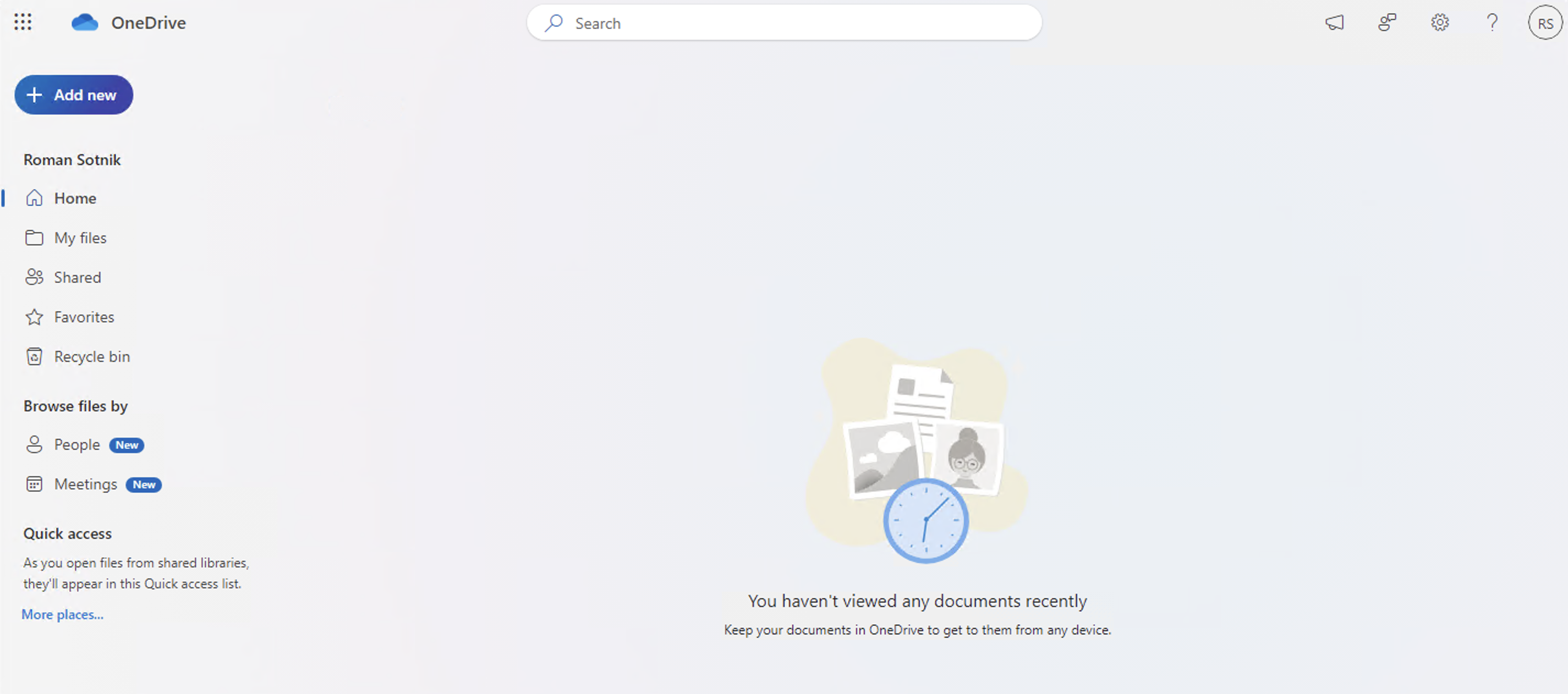
IT Partner offers a range of services related to OneDrive:
- User Home Folder Migration to One Drive for Business
- OneDrive for Business - Document Migration
- OneDrive Tenant-to-Tenant Migration
SharePoint
SharePoint is a data collaborative platform that allows teams and organizations to create, manage, and share documents, sites, and information within their company’s Private Network (Intranet) or on the cloud. It is focused on team collaboration and content management. One can share documents and files within the teams and manage it using SharePoint. It can also be used to create processes and workflows, for example when a person applies for job in your company then the mail attachment of his resume will be uploaded to OneDrive, then another mail will be generated form your end to that person that his application is successful, and this is tracking id of job application. All this automated response is created using SharePoint workflows and processes. SharePoint is well integrated with Microsoft 365 so you can take collaboration to the next level.
Key Features
- Content Management: Organize, store, share and collaborate with team.
- Collaboration: Edit and modify your content in real time.
- Access Control: Grant permissions easily and secure your data.
- Integration: Integrates well with Microsoft 365.
Best Use Cases
- Company’s Intranet.
- Project management and files collaboration.
- Simplifying tasks with SharePoint flows and processes.
Backup & Redundancy
SharePoint, Microsoft's powerful collaboration and document management platform, offers robust data protection through its backup and redundancy mechanisms. Microsoft takes data security seriously by implementing automated backups that shield your valuable information from accidental deletions or corruption. In addition to this, SharePoint utilizes a geographically dispersed network of data centers, ensuring data redundancy. This means that even if one data center encounters an issue, your data remains accessible from other locations, minimizing the risk of data loss. Microsoft's comprehensive approach to backup and redundancy in SharePoint ensures the safety and availability of your critical business documents and collaboration assets.
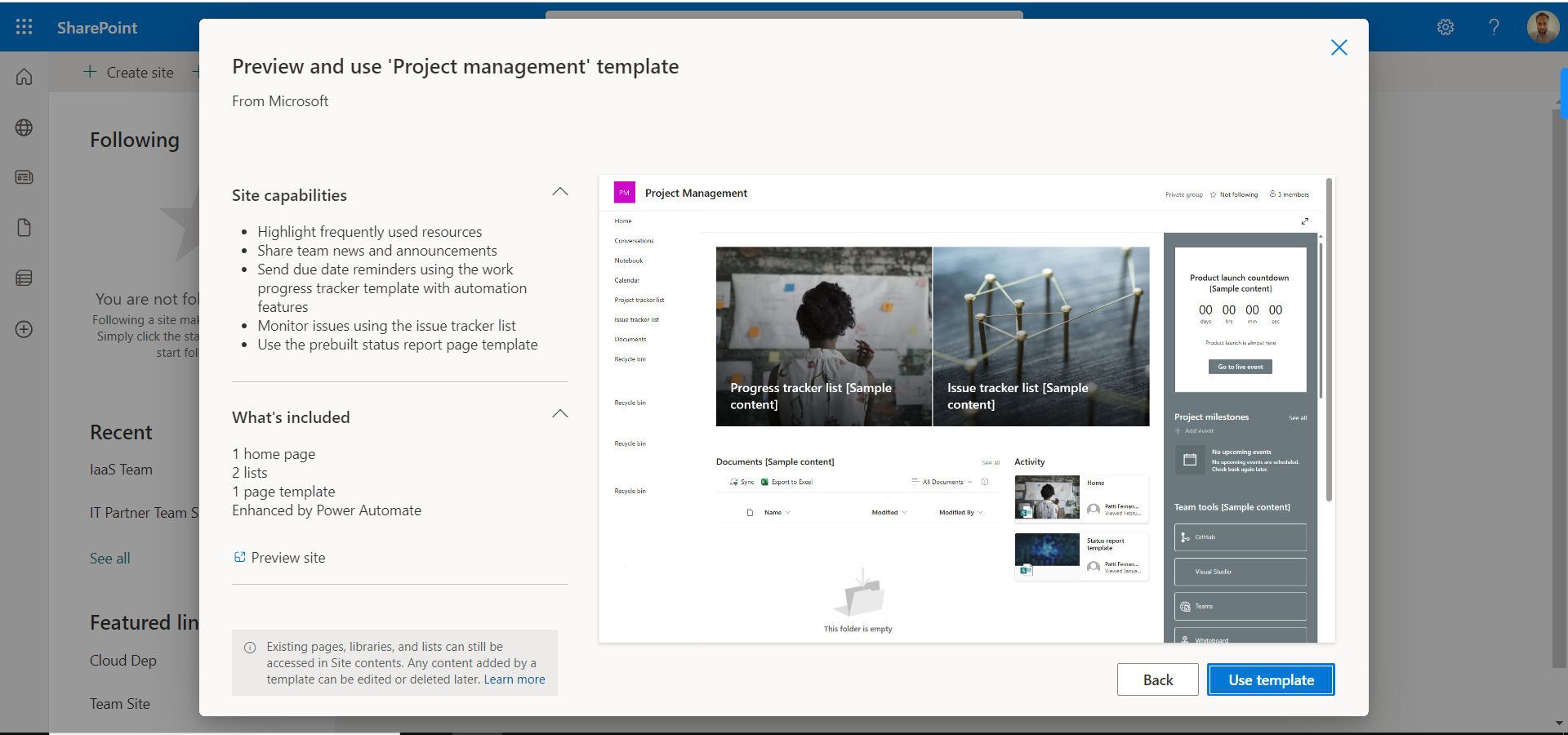
If your organization is looking for SharePoint-related services, IT Partner expert team is always here to assist you. We can provide support with a variety of aspects, including:
- SharePoint Online Administrator On Demand
- Sharepoint Online and Office 365 Apps Customization
- SharePoint Online - Migration from File Server As-Is
- SharePoint Online - Migration with Metadata
- SharePoint Online - Initial Planning and Setup
- ShareFile to SharePoint Online Migration
Azure Blob Storage
Azure Blob Storage is a cloud-based object storage service of Microsoft Azure. It is a versatile repository for managing large volumes of unstructured data of various formats such as images, documents, videos, and backups. The service is highly scalable which ensures efficient storage of data ranging from individual files to massive datasets. Noteworthy features include its multi-data center replication, such as LRS, ZRS, GRS etc. which enhances data durability and availability, and its tiered storage options like Hot, cool & Archive which caters to various access patterns and cost considerations. Security aspects encompass authentication, authorization mechanisms, encryption for data at rest and in transit, and integration with other Azure services. Azure Blob Storage is perfect in various scenarios like content distribution, data archival, media streaming, and IoT data handling, offering a reliable and globally accessible solution for cloud-based data management.
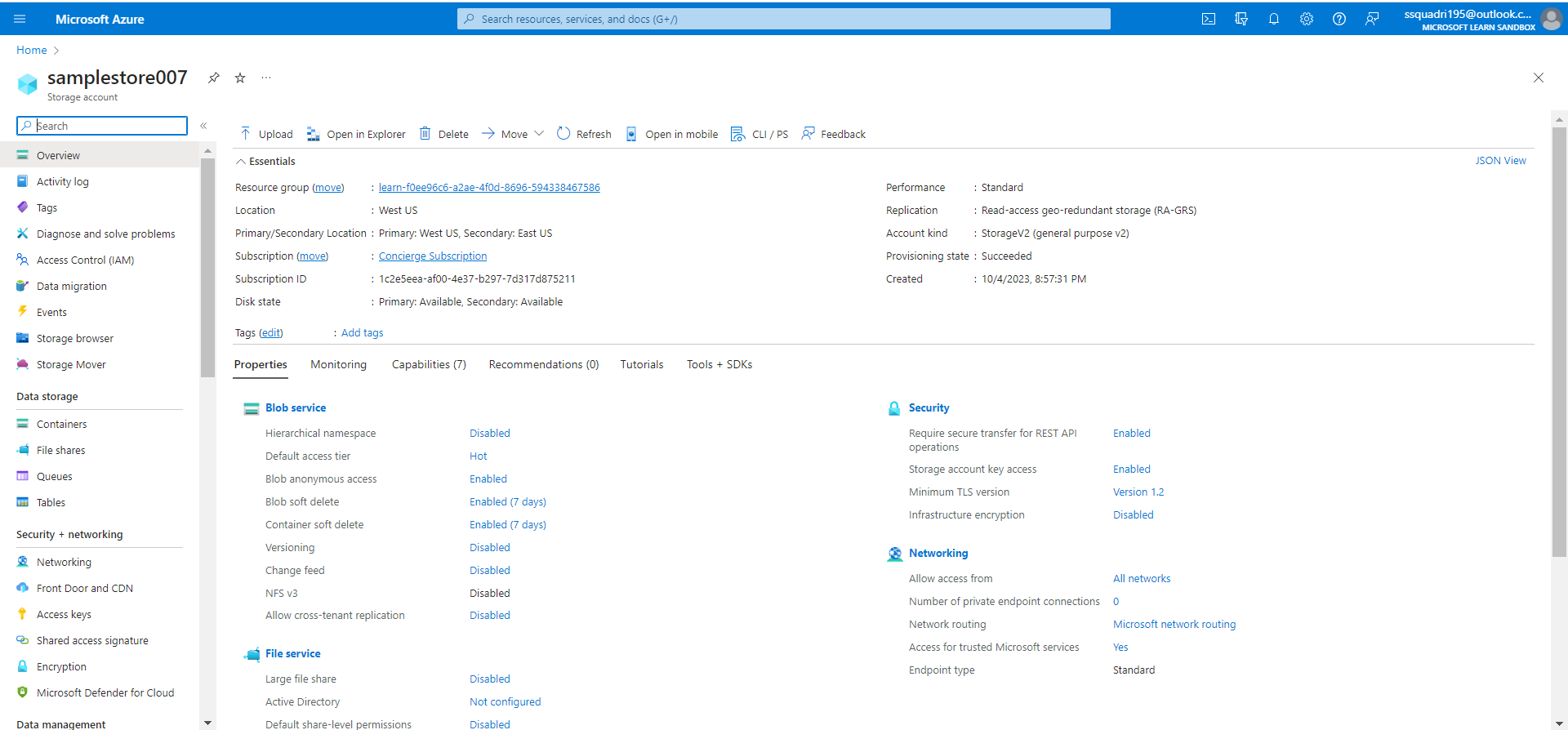
Key Features
- Scalability: Scale up easily and expand from minuscule files to colossal datasets.
- Durability: Multi-data center replication ensures data remains highly available.
- Security: Robust encryption both at rest and in transit.
- Integration: Integrated nicely with wider Azure ecosystem.
Best Use cases
- Media streaming and content distribution.
- Storage and analysis of IoT-generated data.
- Reliable data backup and disaster recovery.
Backup & Redundancy
Azure Blob Storage, Microsoft's scalable cloud object storage solution, offers robust data protection through a combination of backup and redundancy measures. Microsoft employs automated backups to safeguard your data against accidental deletions and system errors. Furthermore, Azure Blob Storage utilizes a geographically distributed system to replicate data across multiple data centers, reducing the risk of data loss due to hardware failures or regional disruptions. With its redundancy options, including locally redundant storage (LRS), geo-redundant storage (GRS), and zone-redundant storage (ZRS), Microsoft ensures that your data remains highly available and resilient. This comprehensive approach to backup and redundancy in Azure Blob Storage is a testament to Microsoft's commitment to keeping your data secure and accessible.
If you require services in administration of your cloud infrastructure in Azure, IT Partner can provide you with Azure Administrator on demand.
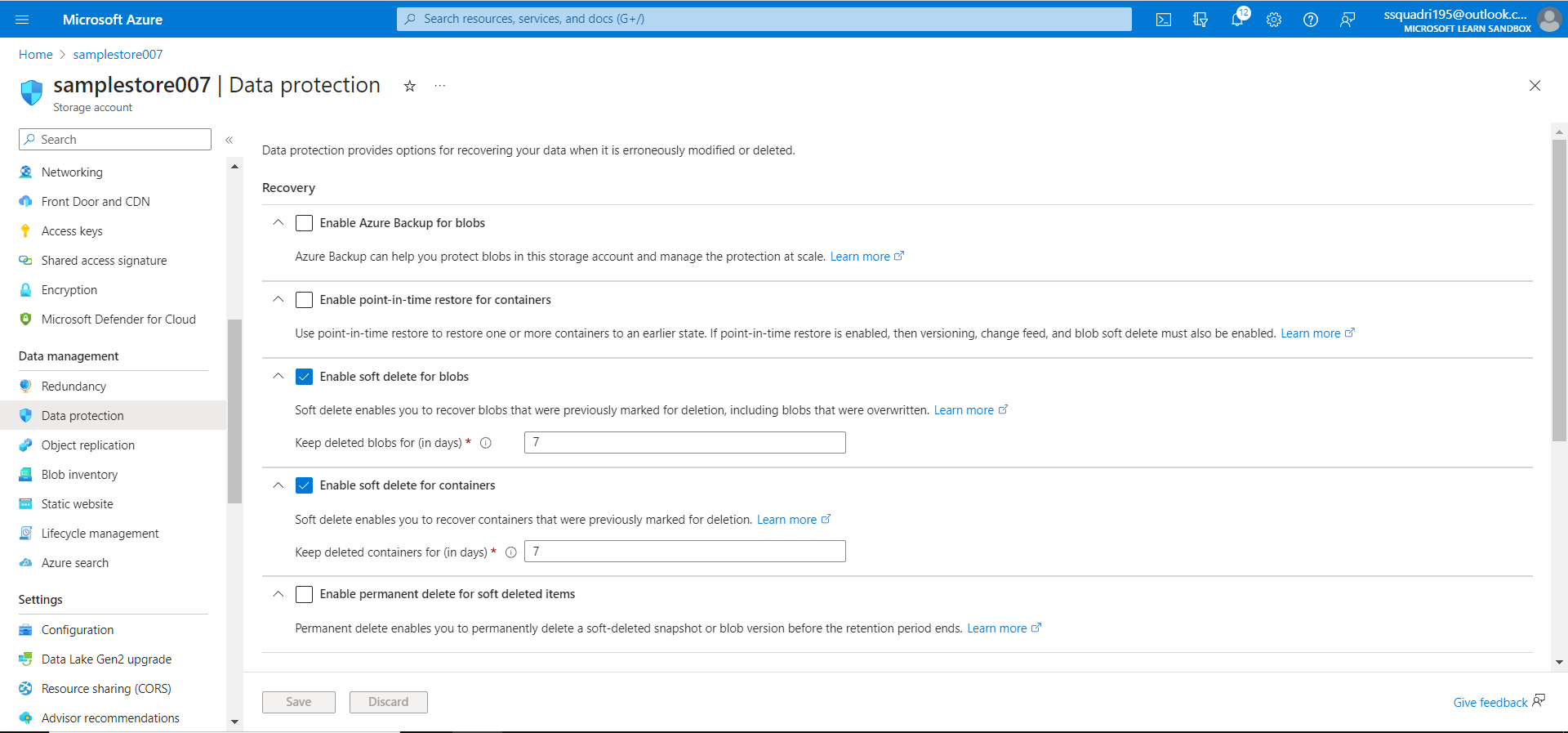
Azure File Share
Azure File Share is a cloud-based network drive accessible via Microsoft Azure. It streamlines file and data sharing, resembling a traditional file server. This service is invaluable for collaborative work, storing application data, and enabling remote file access. It's akin to a digital file cabinet for simultaneous access, ideal for team projects and content distribution. With robust access controls, you decide who can view, modify, or manage files. Operating on the SMB protocol, prevalent in Windows environments, it effortlessly integrates with existing systems. Just as Azure Blob Storage suits object-based storage, Azure File Share is vital for scalable and cloud-native shared file repositories.
Note that while OneDrive and Azure File Share have similarities, OneDrive suits personal and regular office use, especially with Microsoft 365 integration. Azure File Share is optimal for application development, data storage, and Azure service connectivity.
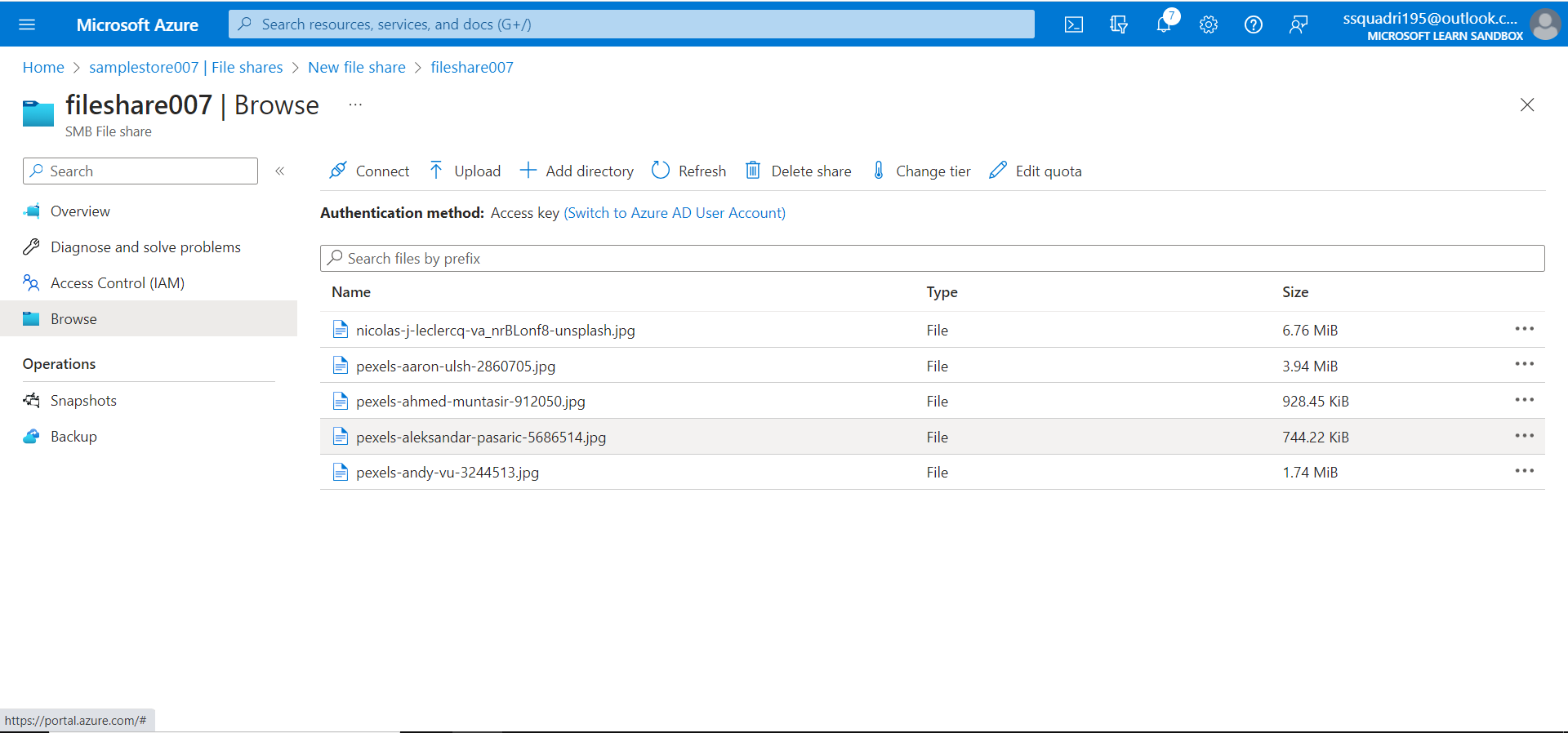
Key Features
- Collaboration: File access for multiple users.
- Security: Granular permissions to protect data.
- Integration: Integrates with Windows environments.
- Scalability: Accommodates increasing storage needs.
Best Use Cases
- Document collaboration within teams.
- Cloud-native application data storage.
- Remote file access from diverse locations.
Backup & Redundancy
Azure File Share, Microsoft's cloud-based file storage solution, ensures data security through robust backup and redundancy measures. Microsoft employs automated backups to protect against accidental data loss, enabling easy recovery when needed. Additionally, Azure File Share utilizes a geographically distributed network of data centers, replicating your data across multiple locations to minimize the risk of data loss due to hardware failures or unexpected disruptions. This dual approach to backup and redundancy guarantees data availability and resilience. Microsoft's commitment to safeguarding data in Azure File Share underscores its dedication to providing a secure and reliable file storage solution for businesses and organizations.
Azure Queue Storage
Azure Queue Storage is a versatile cloud service designed for the efficient handling of a vast volume of messages in a queue. These messages are processed asynchronously, adhering to the publish-subscribe pattern, which enables components to interact without the need for direct real-time connections. Messages within Azure Queue Storage can carry vital information or tasks, effectively distributing workloads and optimizing application performance. Visualize it as a virtual post office, skillfully managing message delivery to bolster scalability and responsiveness within distributed applications, ultimately enhancing overall operational efficiency.
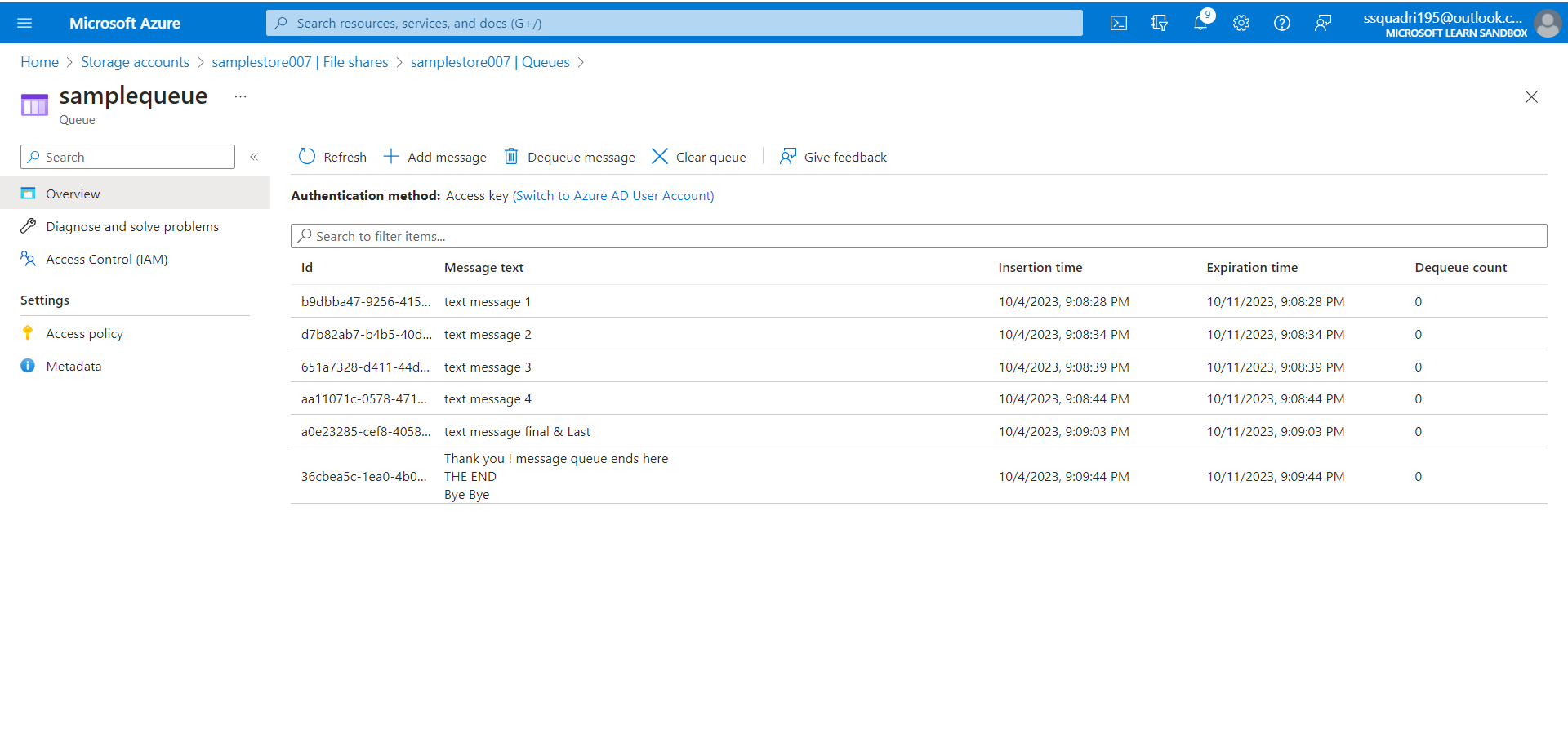
Key Features
- Message Queues: Asynchronous communication hub.
- Decoupling: Components interact without direct links.
- Reliability: Replication across various global data centers.
- Scalability: Adapts to variable message loads.
- Message Time-to-Live: Define message lifespan.
Best Use Cases
- Task Distribution: Efficiently allocate tasks in distributed setups.
- Load Balancing: Queue requests during traffic spikes.
- Event-Driven Systems: Trigger actions via queue messages.
- Microservices: Facilitate communication between microservices.
- Delayed Processing: Schedule tasks for later execution.
- Inter-Application Communication: Exchange data between applications.
- Priority Processing: Assign message priorities.
Backup & Redundancy
Azure Queue Storage, a pivotal component in Microsoft's cloud ecosystem, prioritizes data protection through robust backup and redundancy measures. Microsoft implements automated backups to safeguard your crucial message queues, ensuring data integrity and availability. Additionally, Azure Queue Storage replicates data across geographically dispersed data centers, significantly reducing the risk of data loss due to hardware failures or unforeseen disruptions. This dual approach to backup and redundancy underscores Microsoft's commitment to secure and reliable message queuing, offering peace of mind to businesses and organizations relying on Azure Queue Storage for their asynchronous messaging needs.
Azure Table Storage
Azure Table Storage is like a vast digital table or spreadsheet provided within the Microsoft Azure environment. It serves as a scalable and flexible NoSQL data store, allowing you to manage and query structured data. This service is particularly good at handling large amounts of data while still providing quick access to information. Azure Table Storage is perfect for scenarios such as storing sensor data from IoT devices, user profiles, or other structured data sets. Think of it as a high-capacity, cloud-based Excel sheet where you can store information in rows and columns. Each row has a unique key, and you can quickly retrieve data based on these keys. While it lacks some of the advanced querying abilities of traditional relational databases, Azure Table Storage excels in scenarios where rapid data access and simple data structure are essential.
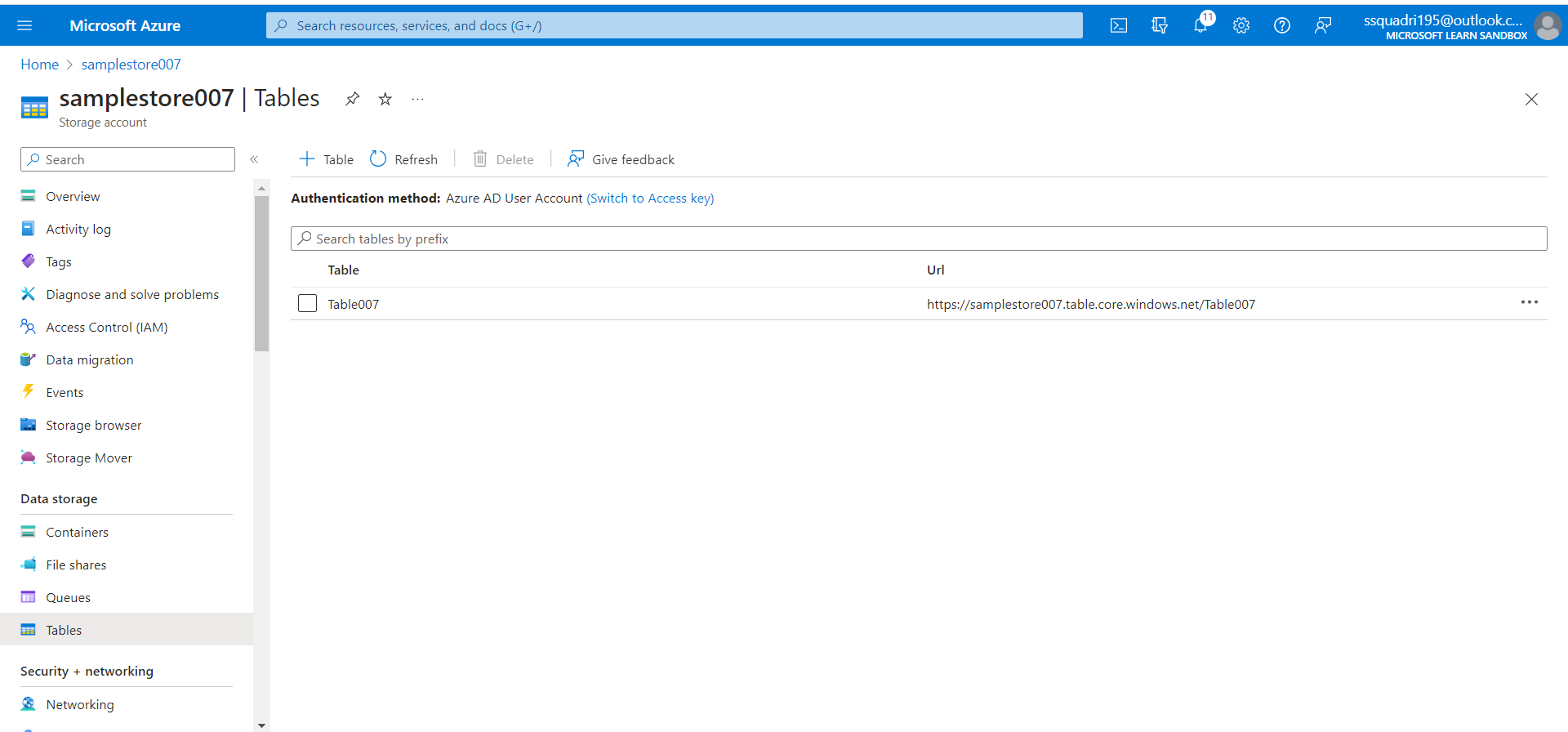
Key Features
- Scalability: Efficiently handles large amounts of data.
- Quick Access: Enables rapid data retrieval based on keys.
- Versatility: Stores structured data with flexibility.
Best Use Cases
- Storing IoT device data.
- Managing user profiles and preferences.
- Handling large datasets with minimal complexity.
Backup & Redundancy
Azure Table Storage, a core component of Microsoft's cloud services, places a strong emphasis on data protection through comprehensive backup and redundancy strategies. Microsoft ensures the security of your valuable data by employing automated backups, guaranteeing the ability to recover information in case of accidental deletions or system issues. Furthermore, Azure Table Storage employs a geographically distributed network of data centers, replicating your data across multiple locations. This approach minimizes the risk of data loss due to hardware failures or unexpected disruptions, delivering high availability and reliability. Microsoft's commitment to data integrity in Azure Table Storage underscores its dedication to providing a secure and dependable solution for storing structured data in the cloud
Microsoft offers a diverse range of cloud storage solutions tailored to address a wide spectrum of data storage and management needs. Whether you require flexible object storage, seamless file sharing and collaboration, efficient sequential data handling, or structured NoSQL data management, Microsoft's solutions are exceptionally well-equipped to meet these demands. Understanding the unique features and real-world applications of each storage option empowers both individuals and organizations to make informed decisions, optimizing their cloud storage strategies within the Microsoft ecosystem. Should you require support with Azure, Microsoft 365, licensing, or cloud migration services, please do not hesitate to get in touch with us. Your success in the cloud is our priority.
Share
2023-10-06